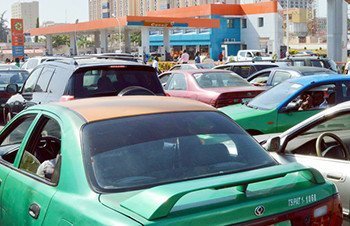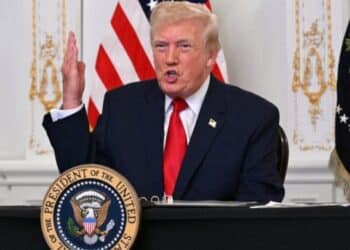THE Federal Government of Nigeria on Wednesday officially ended the subsidy regime on premium motor spirit, popularly known as petrol, and will allow market forces determine the cost of the product.
This was reached during an extensive meeting held at the headquarters of the Nigerian National Petroleum Corporation in Abuja.
Officials, who attended the meeting, said the price of petrol may start from N145 per litre, but explained that the government would strictly monitor compliance.
Following the removal of oil subsidy, the Federal Government has approved an increase in the pump price of petrol as part of efforts aimed at ending fuel queues across the country.
The Minister of State for Petroleum Resources, Dr. Ibe Kachikwu, disclosed this while briefing State House correspondents at the Presidential Villa, Abuja.
He said while the Petroleum Products Pricing Regulatory Agency would be announcing the new price effective from Wednesday, he had been assured that it would not be more than N145 per litre.
Kachikwu said, “Following a detailed presentation by the Minister of State for Petroleum Resources to the meeting, it has now become obvious that the only option and course of action now open to the government is to take the following decisions:
“In order to increase and stabilise the supply of the product, any Nigerian entity is now free to import the product, subject to existing quality specifications and other guidelines issued by Regulatory Agencies.
“All oil marketers will be allowed to import PMS on the basis of FOREX procured from secondary sources and accordingly PPPRA template will reflect this in the pricing of the product.
“Pursuant to this, PPPRA has informed me that it will be announcing a new price band effective today, 11th May, 2016 and that the new price for PMS will not be above N145 per litre.
“We expect that this new policy will lead to improved supply and competition and eventually drive down pump prices, as we have experienced with diesel.
“In addition, this will also lead to increased product availability and encourage investments in refineries and other parts of the downstream sector. It will also prevent diversion of petroleum products and set a stable environment for the downstream sector in Nigeria.”
Kachikwu said the decision was reached at a stakeholders meeting presided over by Vice-President Yemi Osinbajo and attended by the leadership of the Senate, House of Representatives, Governors Forum and labour unions including the NLC, TUC, NUPENG, and PENGASSAN.
The meeting was held inside the Vice-President’s official residence, Aguda House.
The minister said the meeting also noted that the main reason for the current problem was the inability of importers of petroleum products to source foreign exchange at the official rate due to the massive decline of foreign exchange earnings of the Federal Government, saying as a result, private marketers have been unable to meet their approximate 50% portion of total national supply of PMS.
He did not entertain any question at the end of the briefing.









